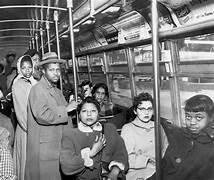In 2008, the United States witnessed a divisive and highly controversial ballot measure in California known as Proposition 8. This proposition sought to define marriage as exclusively between a man and a woman, effectively banning same-sex marriage in the state. The passage of Proposition 8 and the subsequent legal battles surrounding it highlighted the ongoing struggle for LGBTQ+ rights and sparked a national conversation about marriage equality.
The background of Proposition 8 can be traced back to 2004 when California's Supreme Court legalized same-sex marriage through a ruling known as In re Marriage Cases. This decision made California the second state in the country, after Massachusetts, to legalize same-sex marriage. However, opponents of marriage equality quickly mobilized and gathered signatures to place Proposition 8 on the November 2008 ballot.
The campaign surrounding Proposition 8 was highly contentious, with both sides pouring significant resources into their respective campaigns. Supporters of the proposition argued that marriage should be defined as between a man and a woman based on religious, moral, and traditional beliefs. They believed that allowing same-sex couples to marry would undermine the institution of marriage itself.
On the other hand, opponents of Proposition 8, including LGBTQ+ rights activists, argued that marriage equality was a matter of civil rights and equal protection under the law. They believed that denying same-sex couples the right to marry was a form of discrimination and violated basic principles of fairness and equality.
Ultimately, on November 4, 2008, Proposition 8 passed with 52% of the vote, amending the California Constitution to define marriage as only between a man and a woman. The passage of Proposition 8 sparked outrage and protests from the LGBTQ+ community and its allies, who saw it as a significant setback for their fight for equal rights.
The aftermath of Proposition 8 saw a series of legal challenges and activism aimed at overturning the measure. In 2010, a federal district court ruled Proposition 8 unconstitutional, arguing that it violated the Equal Protection Clause of the Fourteenth Amendment. This decision was later upheld by the Ninth Circuit Court of Appeals and eventually reached the U.S. Supreme Court.
In 2013, the U.S. Supreme Court issued a landmark ruling in Hollingsworth v. Perry, effectively striking down Proposition 8. The court held that the proponents of Proposition 8 lacked standing to defend the law, leading to the restoration of same-sex marriage in California.
The passage and subsequent legal battles surrounding Proposition 8 had a profound impact on the LGBTQ+ rights movement in the United States. It galvanized support for marriage equality and led to a heightened national conversation about equal rights for same-sex couples. The fight against Proposition 8 served as a catalyst for further progress in the push for marriage equality, culminating in the Supreme Court's historic ruling in Obergefell v. Hodges in 2015, which legalized same-sex marriage nationwide.





